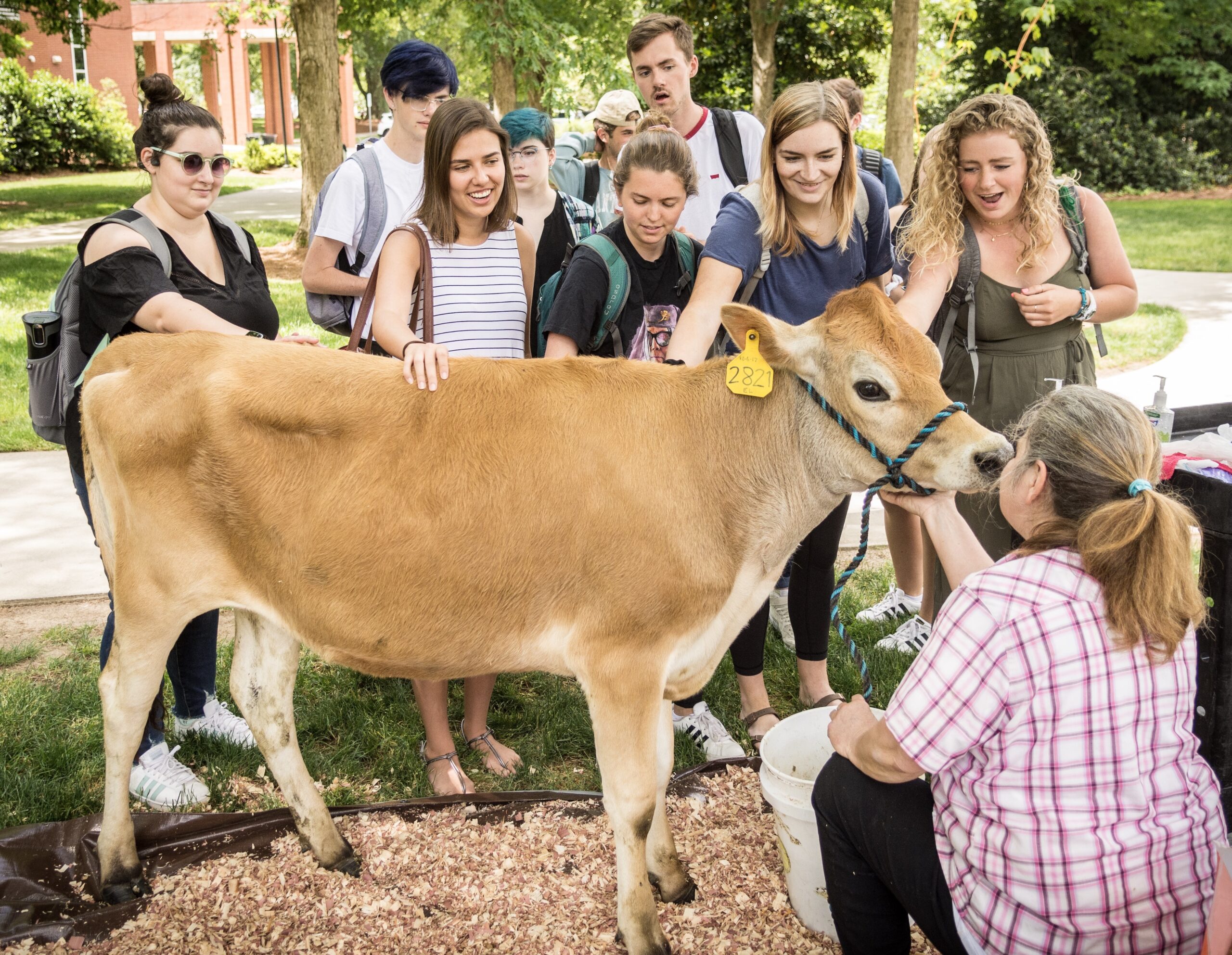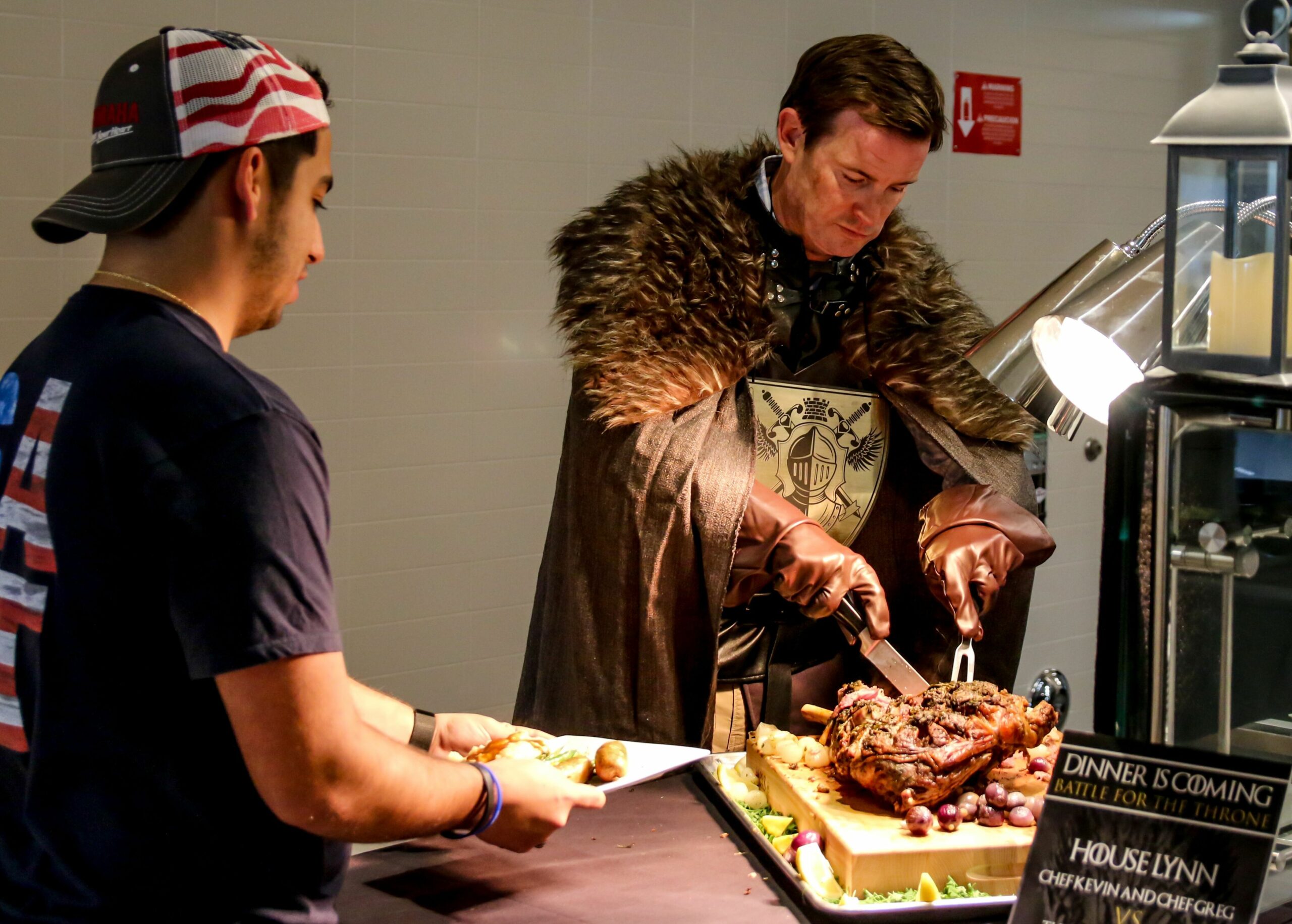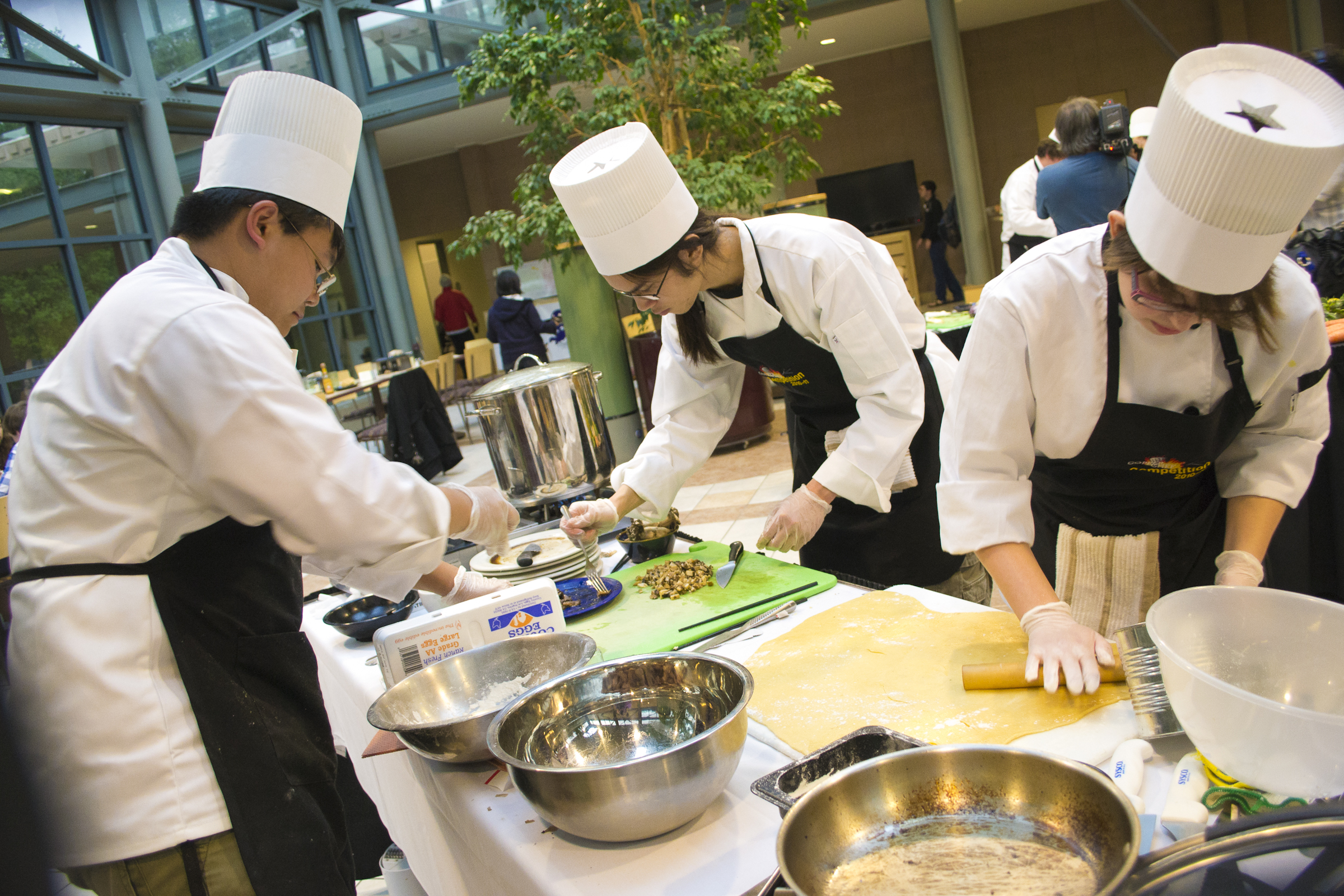I just saw a cow on campus! The president of the university has a sword! And he’s dressed up as Jon Snow from Game of Thrones! Today’s secret ingredient is pomegranate!
No, this isn’t some first-year student’s surrealist orientation nightmare. These are the highlights of special events that campus dining leaders have cooked up in recent years to add some zest to the daily routine.
“It’s not that students get bored with everyday menus, but these are things that are totally new and that they didn’t expect,” says
Casey Claflin, the guest experiences manager with Harvest Table Culinary Group, the dining provider at Elon University in North Carolina.
To whet your appetite for bringing similar events to your campus, here’s a taste of some creative recipes for fun in and outside the dining hall.
Stimulating a staple
What’s the first food you think of when someone brings up dorm room cuisine (other than cold pizza crusts for breakfast)?
Well, dining managers at Albany State University in Georgia realized that ramen noodles could be so much more than a quick, salt-soaked slurp to sustain a sleep-deprived student cramming for a “Calculus 101” test.
UBTV Video: Watch higher ed serve up fun with food
The school held an end-of-year “monotony breaker” in the form of a ramen cooking contest. Four teams used provided ingredients and garnishes as they faced off in the middle of the dining hall during dinner, says Amanda Patterson, resident district manager for Aladdin Food Management Services, the dining contractor.
Though shrimp was a popular ingredient for the competition, this year’s winning recipe was fueled by sweet chili, she says.
Read more: Food delivery and mobile ordering options
Dining services also held a luau party during exam week. Students got to design their own flip-flops and visors. “After you’ve eaten in the same place for several weeks, these events break up the normal dining room atmosphere,” Patterson says.
Guest chefs delight
Students at Elon were surprised this past school year to encounter a 17-month-old calf (accompanied by a farmer) on campus.

The animal was part of a pop-up event in which students tasted locally produced smoothies and yogurt, and also learned about dairy production. “It was really engaging, especially for students not familiar with farming and agriculture,” says Claflin, the guest experiences manager.
Other pop-up events held at the school include doughnut and matcha tea stations. In addition, dining services holds a Food Truck Frenzy each semester and occasionally invites local restaurants to take over the dining halls. So far, cooks from an Indian restaurant, a Mediterranean deli and a bagel shop have served as guest chefs.
“We design the events to surprise and delight—to be something out of the ordinary,” he says.
‘Dinner is coming’
Jon Snow (with help from Lynn University’s head chef) faced off against the army of the dead in the Florida school’s annual Battle Royale cooking competition. Unlike in the Games of Thrones TV show, this battle for the future of humankind took place in front of students, staff and faculty in a Boca Raton dining hall.

President Kevin Ross, representing House Lynn, played the handsome, brooding hero (Jon Snow), while Lynn’s chefs took on the roles of white walkers—they even wore blue sunglasses to mimic the magical, menacing eyes of the show’s insatiable zombie hordes. Ross’ team’s leg of lamb recipe won out (of course) over turkey legs and roast chickens cooked by the bad guys.
“We made the whole menu match what you might eat on the show,” says Sam Ramos, Sodexo Education’s general manager at Lynn University.
Read more: 8 ways to take campus dining to the next level
Administrators even commissioned ice sculptures of a wolf, dragon and iron throne to add to the ambience.
Ramos marketed the event for weeks ahead of time, giving dining hall staff “Dinner is Coming” T-shirts to wear, among other promotional efforts. “In university food service, we want to make things different and create a buzz,” Ramos says. “We want to create an atmosphere that allows people to escape from what they’re doing.”
Flavor engineers
Harvey Mudd College in Southern California is renowned for its math, science and engineering program. Its lack of a culinary academy, however, has not hampered the annual Copper Chef competition.
A team from each residence hall has to win over the judges with menus that incorporate a secret ingredient that isn’t revealed until the night of the competition.

The competition begins with teams from within the college’s nine residence halls competing against one another. The champs from each building set up at a central cooking station and then face off while their fellow students are having dinner. Just before they start, however, the head chef reveals the secret ingredient.
One year it was pomegranate, which the winning team used to make a creamy pasta, says Miguel Ruvalcaba, director of dining services.
“A lot of the students don’t have any prior experience as a chef,” Ruvalcaba says. “But it’s a lot of fun to see the connections they create with faculty and staff.”






